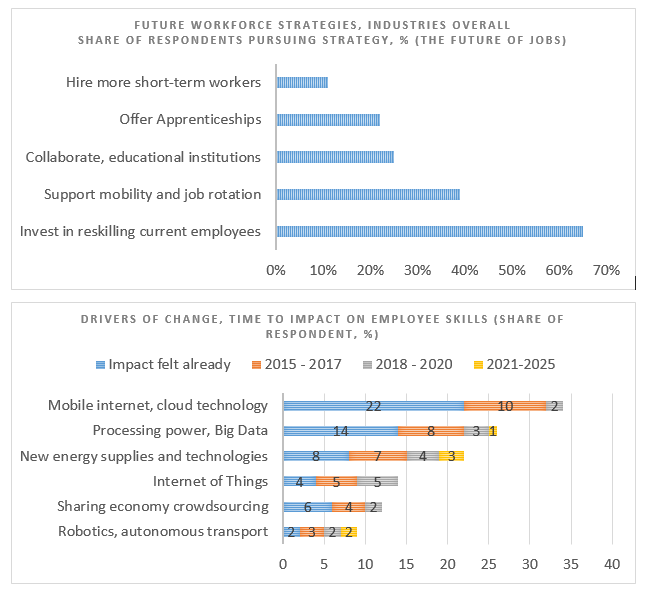If you follow me, you know much of my recent work has been laser focused on skills. My philosophy is summarized on my website: Skills Culture. I think companies should forecast their future workforce on skills, hire based on skills, and adopt a learning culture based on skills.
Why think in skills? Here is why:
- Occupation or specialties are changing too fast:
- “The most in-demand occupations or specialties did not exist 10 or even five years ago, and the pace of change is set to accelerate.” The Future of Jobs – World Economic Forum
- Skills are tangible, something to talk about. They are:
- Definable, standardized, portable, searchable, measurable, and flexible.
- Skills are the ‘verb’ in knowledge. It is the action part.
- Skills define how we think, converse, problem solve, create, engineer, write, debate, play and so on. They are the underlying foundation of all learning.
- Displacement of jobs due to automation and AI.
- Need to build skills unique to human capabilities. Identify and acquire skills that complement these new technologies. “Everything that can be automated will be automated.” (Pew Research Digital Life in 2015)
Evaluating resumes is outdated and does not make sense with the technologies accessible to us. Here is how you should hire based on skills:
- Measure precisely with assessments.
- Create your own problem sets, based on your own set of rubrics.
- Use third-party solutions.
- CLA + to measure critical thinking and problem solving skills of a college graduate.
- Knack provides online games to measure talents.
- Draw your own conclusions on demonstrable results (projects or coursework).
- Role play. Create a script or project. Use bars to measure specific behaviors and skills.
- Create your own online or video game. Simulate actual experiences.
- Benefit of simulation versus a self-assessment.
I hear a popular phrase “Hire for character, you can train skill.” Partly agree (sure character is ideal), but mostly disagree. Putting the time and effort to acquire a set of skills and behaviors over an extended period of time demonstrates character. Conscientiously applying skills in every experience requires diligence. Workers who command skills deserve commendation. How can you not respect someone who has made that kind of an investment into something particular?
Much of the discussion in The Future of Jobs Report published by the World Economic Forum backs up my assertion that we should be thinking in skill for workforce development.
Skills-Based Approach is a methodology and application to solve these problems in workforce development. I will be giving an upcoming seminar: Mining Future Talent: How to Plan Related Job Training and Learning Based on Forecast of Workforce Demands.
